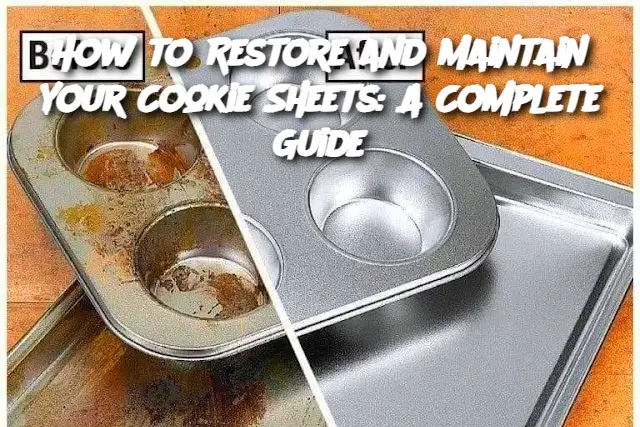ADVERTISEMENT
For Aluminum Cookie Sheets: If you have aluminum cookie sheets, consider cleaning them with lemon juice instead of vinegar for a gentler option. The acidity of the lemon helps remove oxidation and stains without being harsh on the metal.
For Non-Stick Cookie Sheets: Be extra cautious with non-stick cookie sheets. Always avoid using harsh scrubbing tools that could scratch the surface. Opt for a soft sponge and gentle cleaners like dish soap and water.
For Cast Iron Cookie Sheets: If you’re using a cast iron baking sheet, make sure to season it after cleaning. Apply a light layer of vegetable oil and heat it to restore the seasoning and prevent rusting.
FAQ:
How often should I clean my cookie sheets?
It’s best to clean your cookie sheets after every use, especially if they’ve become greasy or have food stuck to them. However, a deep clean can be done every few weeks, depending on how frequently you bake.
Can I use bleach to clean my cookie sheets?
It’s not recommended to use bleach on your cookie sheets, especially if they are non-stick or made of aluminum. Bleach can damage the surface and make your sheet unsuitable for baking.
How do I prevent rust on my cookie sheets?
To prevent rust, always dry your cookie sheets thoroughly after washing. If your cookie sheet is metal, consider applying a thin layer of vegetable oil after cleaning to help protect it from rust.
What’s the best way to remove burnt food from a cookie sheet?
For burnt food, a mixture of baking soda and water works wonders. Apply it to the burnt area, let it sit, and then scrub gently. You can also try soaking the sheet in hot water with dish soap for several hours.
Is it okay to use metal utensils on my cookie sheet?
If your cookie sheet has a non-stick coating, avoid using metal utensils as they can scratch and damage the surface. Opt for silicone or wooden utensils to protect the coating.
With these cleaning techniques, your cookie sheets will stay looking brand new and be ready for your next baking adventure!
ADVERTISEMENT
